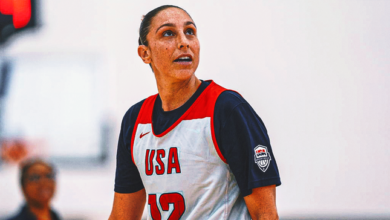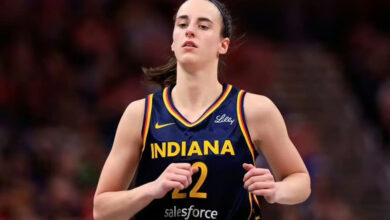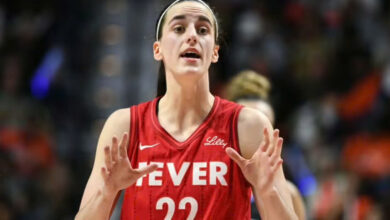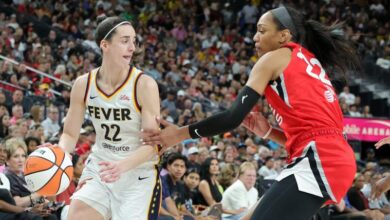Everybody HATES Caitlin! How Pleasing EVERYONE Will DESTROY Caitlin Clark!

The ongoing drama surrounding WNBA star Caitlin Clark continues to capture attention. Recently named Time’s Athlete of the Year, Caitlin has faced significant criticism regarding privilege and her impact on the league.
Her rise to prominence began in women’s college basketball, where her exceptional scoring and playmaking abilities drew widespread admiration. However, her rookie season in the WNBA has been marked by controversies, particularly around issues of race and privilege.
In a recent interview, Caitlin acknowledged her privilege as a white athlete in a league historically led by Black players. This sparked widespread reactions. Former WNBA star Cheryl Swoopes and Washington Mystics owner Sheila Johnson stressed the importance of recognizing the contributions of Black women to the league.
Many fans agreed, arguing that discussions about privilege and systemic barriers are necessary but often overlooked.
The “Caitlin Clark effect,” a term that describes her impact on the sport, has divided opinions. While some celebrate her talent and contributions, others feel it highlights racial disparities in how players are recognized.
Critics argue that equally talented Black players have not received similar attention. Caitlin herself has publicly credited Black athletes for laying the groundwork for the league’s success, a statement that earned her both praise and criticism.

The backlash intensified after Caitlin was named Time’s Athlete of the Year. Some questioned why the honor wasn’t given to the entire WNBA, while others accused her of leveraging the spotlight for her own benefit. Caitlin’s acknowledgment of privilege alienated parts of her fanbase, with some supporters feeling betrayed and others dismissing her comments as insincere.
Despite the ongoing controversies, Caitlin’s on-court performance remained exceptional. She was named WNBA Rookie of the Year and consistently drew large crowds, driving ticket sales and boosting attendance numbers. Her games were often moved to larger venues to accommodate the increased interest, solidifying her role as a key driver of the league’s visibility.
The WNBA, however, continues to face major challenges. While Caitlin and her high-profile rivalries with players like Angel Reese have attracted attention, the league’s financial struggles persist.
Although revenues have reached record highs, so have expenses, with losses projected to hit $40 million this season. Racial tensions and divisive narratives, amplified by media and fans, threaten to alienate new supporters and hinder the league’s growth.
Caitlin’s recognition as Time’s Athlete of the Year has brought even more scrutiny. While she is celebrated by many as a role model, the backlash has put her in a difficult position, alienating some of her fans while failing to win over her critics. The WNBA faces the challenge of fostering a more inclusive and supportive environment for all players while addressing systemic issues that have long plagued the league.








